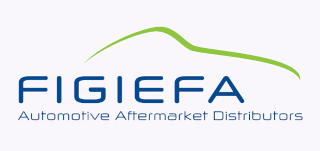The Repair Clause: A Historic Win for Freedom of Choice
For decades, the Independent Automotive Aftermarket (IAM) faced significant challenges due to fragmented legislation on design protection for visible spare parts -such as body panels, headlamps, windscreens, and mirrors. These parts, often referred to as “must-match” components, must replicate the original design to restore a vehicle’s appearance after an accident or repair.
Until recently, the absence of harmonisation at the European Union level created a patchwork of conflicting national laws. This situation allowed vehicle manufacturers to extend design rights to visible spare parts, effectively granting them monopolies in the aftermarket. The result? Higher prices, limited consumer choice, and legal uncertainty for independent operators across borders.
Thanks to the tireless work of FIGIEFA and the other members of ECAR (European Campaign for the Freedom of the Automotive Parts and Repair Market), we finally have harmonised legislation on the design protection of visible automotive spare parts at the European level. This put an end to the legal uncertainties and hampered the competitiveness of parts distribution companies and the entire independent automotive aftermarket.
What was the issue?

Until 2024, the legislation on design protection of visible automotive spare parts (glazing, lightings, body parts, rear-view mirrors) was not harmonised at the European level.
The European Commission already issued three legislative proposals (in 1993, 1997 and 2004) aiming at harmonising design law within the European Union and introducing a ‘Repairs Clause’ in the Design Directive. This so-called ‘Repairs Clause’ would terminate the monopoly of vehicle manufacturers on the production and commercialisation of must-match visible spare parts. The European Parliament also actively and publicly supported the Clause, but it was ultimately vetoed by several European Union member states under strong pressure from vehicle manufacturers, and the legislative process stalled. The consequence is a patchwork of conflicting national laws, creating legal uncertainties and red tape for businesses.
Thanks to ECAR's perseverance in its work, supported by FIGIEFA (founding member), the debate resumed during the 2019-2024 EU mandate. The European Commission conducted an evaluation of existing European legislation to update and improve it. This was a new opportunity for our sector. Meanwhile, some national legislations had also evolved. In particular, Germany, which had been very reluctant in the past, introduced in 2020 a Repairs Clause into its national legislation, applying it to the newly type-approved vehicle park, thereby joining the side of countries standing for free competition.
How does it impact our business ?
Without a Repairs Clause at national or European Union level, or when there was a (long) protection period of the design of visible spare sparts, it prevented our Members and all independent aftermarket operators from producing, importing, selling, and installing body-related visible spare parts which are not produced or commercialised by the vehicle manufacturers.
It created legal uncertainties for businesses. While it was perfectly legal to put independent spare parts on the market in one country, it was not necessarily the case in the neighbouring country. It adds red tape and creates delays to operations, especially when these parts have to cross borders. It can even result in vehicle manufacturers suing independent spare parts producers/distributors/repairers, fines and legal prosecution for importing, commercialising or using spare parts from independent sources. It deprives spare parts distributors of a huge market, or force them to source these parts to the vehicle manufacturers, which comes with a high cost and makes the services of the independent aftermarket less competitive and less attractive for workshops and consumers. This is an unacceptable situation.
The Turning Point: EU Adopts the Repair Clause
In October 2024, after more than three decades of debate, the Council of the European Union adopted the long-awaited Repair Clause as part of the revised Design Directive and Design Regulation. This landmark decision ensures that design protection for vehicles no longer extends to visible spare parts used exclusively for repair purposes.
From May 2025 onwards, independent manufacturers and distributors can freely produce, market, and install these parts throughout the EU, provided they are used to restore the original appearance of a vehicle and are clearly identified as non-original. This reform closes the door on unfair monopolies and opens a new era of fair competition, affordability, and sustainability in the automotive aftermarket.
FIGIEFA’s Role
FIGIEFA, as a founding member of ECAR (European Campaign for the Freedom of the Automotive Parts and Repair Market), has been at the forefront of this fight since 1993. This achievement reflects years of advocacy, dialogue with EU institutions, and collaboration with consumer groups and insurers.
While the adoption of the Repair Clause is a major victory, FIGIEFA continues to monitor its implementation and address remaining challenges—such as transitional periods for existing designs and compliance requirements for transparency.
